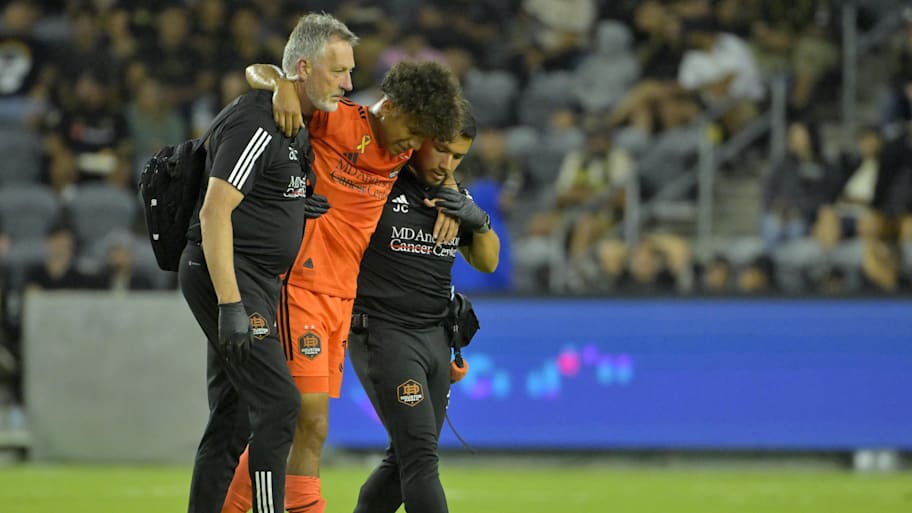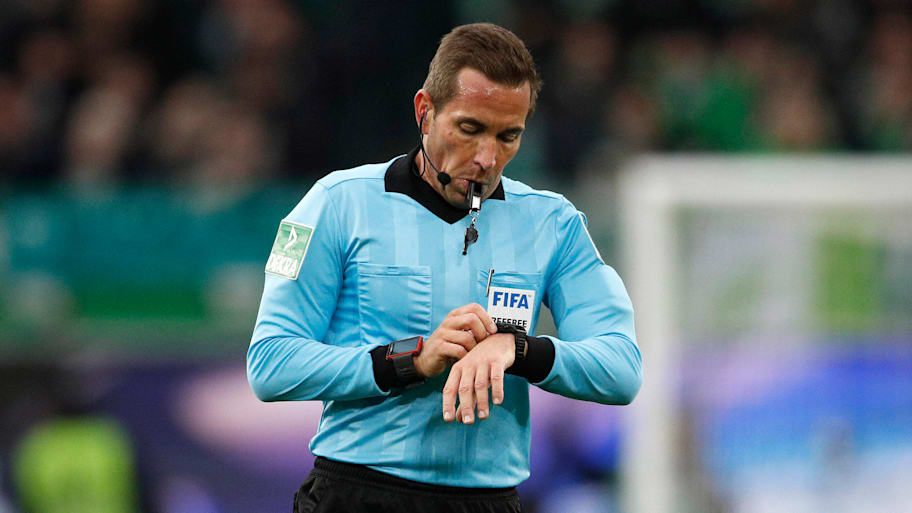Despite its use of a running clock, soccer is a game that has plenty of stoppages in play.
Whether its a substitution being made or the video assistant referee (VAR) being called in to help with a tight offside call, soccer matches often come to a standstill.
So what happens to all this lost time? And how is it monitored?
What is stoppage time in soccer?

A standard soccer match is 90 minutes long and consists of two 45-minute halves.
Stoppage time, also referred to as injury time or added time, is an additional period added to the end of each half. Its purpose is to compensate for time lost during the game due to stoppages such as injuries, substitutions, or other delays.
For example, if play is stopped for two minutes because of an injury, the same amount of time is then added on to the end of the respective half.
How is stoppage time determined in soccer?

It is the job of the referee in soccer to determine stoppage time in soccer by keeping track of every pause in play throughout the half, from fouls to goal-scoring celebrations. Then, they calculate how much added time is needed to account for all the stoppages.
Once they have the correct amount of time, they communicate it to the fourth official, who will hold up the number on the same electronic board used for substitutions.
Typically, at the end of the second half, the board will read anywhere from three to five minutes, though prolonged delays, perhaps for a critical injury, can result in stoppage time being much longer.
There is also no guarantee that the half or the game will end as soon as stoppage time finishes, though. More delays during the additional minutes, including for time wasting or substitutions, can extend stoppage time.
The teams will not leave the pitch until the referee deems stoppage time officially over and blows the whistle for full time.
What is the longest recorded stoppage time ever?
There is no maximum stoppage time in a soccer match. This means, if the circumstances call for it, stoppage time can go on for a significant period.
The longest recorded stoppage time in a professional soccer match occurred during a Carabao Cup game between Burton Albion and Bournemouth in September 2019. Due to an electrical failure that caused the floodlights to go out, a record 28 minutes of stoppage time were added at the end of the match.
At the World Cup, the most stoppage time there has ever been was in a game between England and Iran in 2022, where there was a massive 24 minutes of time added on.
Does stoppage time count in sports betting?

Yes, stoppage time is included in most betting markets.
When you place a bet on the outcome of a soccer match, it typically applies to the 90 minutes of regular time plus any stoppage time added by the referee.
It typically does not, however, include extra time, which is played in knockout rounds or other competitions where a winner must be determined after the regular 90 minutes. Extra time consists of two additional 15-minute periods, and any goals scored during this time do not generally count toward regular-time betting outcomes.
As is always the case with betting, it's best to read the rules of the betting platform to understand bet-specific conditions.
READ THE LATEST SOCCER NEWS, RUMORS, MATCH PREVIEWS AND REACTION
This article was originally published on www.si.com as How Is Stoppage Time Determined in Soccer?.
